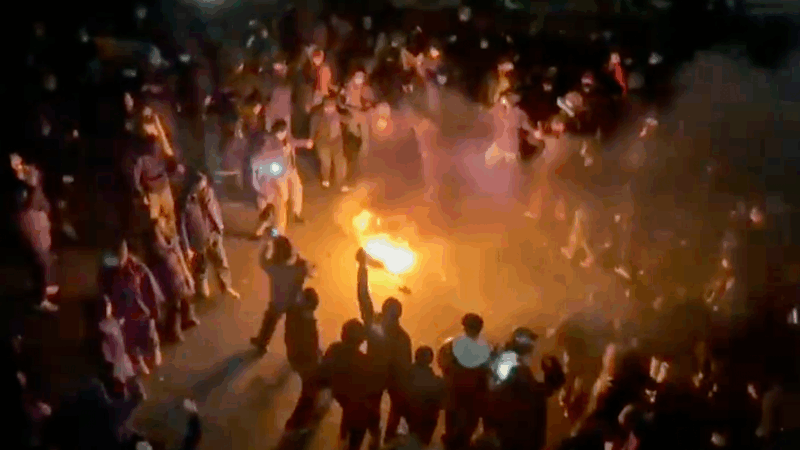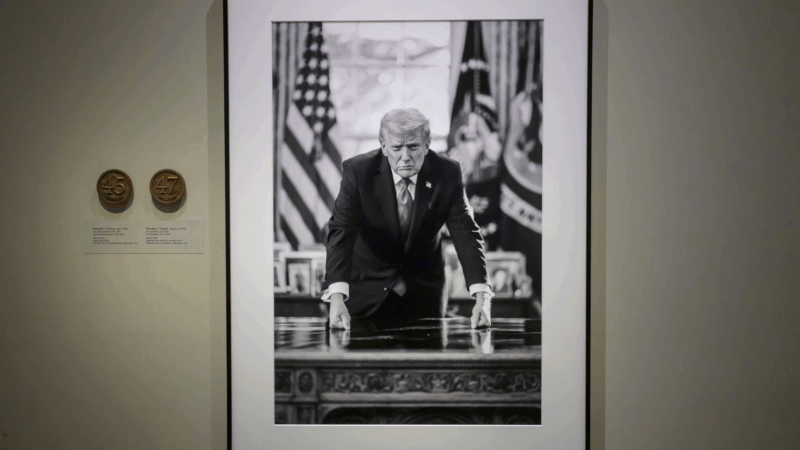President Trump can continue to withhold billions in foreign aid, court rules
A federal appeals court handed President Trump a victory on Wednesday. The court ruled that the administration can continue to freeze or terminate billions of dollars that Congress had earmarked for foreign aid spending.
In a 2-to-1 vote, a panel of judges from the U.S. Court of Appeals for the District of Columbia Circuit said the plaintiffs in the case, a group of international aid groups, did not have the legal standing to bring a lawsuit.
The foreign aid freeze was an action the President took on his very first day in office in January.
The money in question includes nearly $4 billion for global health programs through September and more than $6 billion for HIV and AIDS programs through 2028.
President Trump has called foreign aid spending on programs that tackle disease outbreaks and poverty overseas “wasteful.” The administration dismantled the U.S. Agency for International Development which oversaw and managed about $30 billion annually in global health and development programs.
A group of international aid groups that were recipients of foreign aid grants sued the administration on February 10, and in March U.S. district judge Amir Ali issued a preliminary injunction against the funding freeze, saying that the administration had unlawfully frozen funds that were allocated by Congress.
Wednesday’s ruling reversed the lower court’s preliminary injunction, but the panel of judges did not rule on whether the terminations of funds appropriated by Congress were constitutional.
“The grantees have failed to satisfy the requirements for a preliminary injunction in any event,” wrote Judge Karen LeCraft Henderson, an appointee of George H.W. Bush. She was joined by Judge Gregory G. Katsas, a Trump appointee.
Judge Florence Pan, who was appointed by Joe Biden, wrote the dissenting opinion.
“The court’s holding that the grantees have no constitutional cause of action is as startling as it is erroneous,” Pan wrote. “The majority holds that when the President refuses to spend funds appropriated by Congress based on policy disagreements, that is merely a statutory violation and raises no constitutional alarm bells.”
In a statement, Mitchell Warren, the executive director of the AIDS Vaccine Advocacy Coalition (AVAC) – one of the aid groups in the lawsuit challenging the freeze – condemned the ruling.
“Time and again, this administration has shown their disdain for foreign assistance and a disregard for people’s lives in the United States and around the world. More broadly, this decision, which we will appeal to the extent possible, further erodes Congress’s role and responsibility as an equal branch of government, and the majority opinion makes the court complicit,” Warren said.
Death toll from protests in Iran increases as Trump says Iran wants to talk
President Trump said Sunday that Iran proposed negotiations after his threat to strike the Islamic Republic over its crackdown targeting demonstrators. Activists say at least 544 have died.
Arson engulfs Mississippi synagogue, a congregation once bombed by Ku Klux Klan
A suspect is charged with arson in a fire that burned through a synagogue in Mississippi. Flames and smoke destroyed its library, housing Torahs.
DOJ subpoenas Federal Reserve in escalating pressure campaign
The Justice Department has subpoenaed the Fed over chair Jerome Powell's testimony over the central bank's headquarters renovation. Powell calls it part of a pressure campaign over interest rates.
The 2026 Golden Globe awards are Sunday. Here’s how to watch
The 2026 Golden Globes air on Sunday night starting at 8 p.m. ET / 5 p.m. PT.
National Portrait Gallery removes impeachment references next to Trump photo
A new portrait of President Trump is on display at the National Portrait Gallery's "America's Presidents" exhibition. Text accompanying the portrait removes references to Trump's impeachments.
America’s top figure skaters dazzled St. Louis. I left with a new love for the sport.
The U.S. Figure Skating National Championships brought the who's who of the sport to St. Louis. St. Louis Public Radio Visuals Editor Brian Munoz left a new fan of the Olympic sport.






